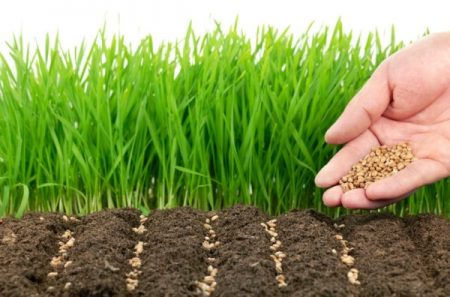
Each gardener seeks to obtain a large crop of potatoes. But not all resort to the use of industrial fertilizers. However, ordering manure or humus today is not cheap. Planting green manure for potatoes is a good and not expensive way to make the soil fertile and healthy.
Some green manure for potatoes will help get rid of nematodes, wireworms, late blight. These useful plants give a plentiful green mass, which is used as fertilizer, giving the potato all the accumulated useful substances. Planting green manure is one of the environmentally friendly ways to increase potato yields.
Content
What is siderata
Siderata - these are plants that are grown to enrich the soil with all the necessary trace elements. And also siderates inhibit the growth of weeds. Siderata are plants that quickly build up green mass. Further, these plants are mowed and digged with soil or left on the surface as a protective layer. The root system of siderates decays and serves as an additional source of nutrition for planted crops. The aerial part of green manure covers the soil from sunlight, which means that the moisture evaporates not so intensively, in the shade of these plants sprouted weeds die.

Siderata for potatoes
Vika
In common people - this plant is known as mouse pea. Vika annual plant is able to quickly build up green mass. Mouse peas grow well on neutral soils; they plant it well in advance of garden crops. Rotting the vetch roots in the soil, they saturate the soil with nitrogen and phosphorus; when the green mass of the plant is embedded in the soil, a light fertile layer of biohumus is formed. Vika is most often used along with canola, mustard, and oats.
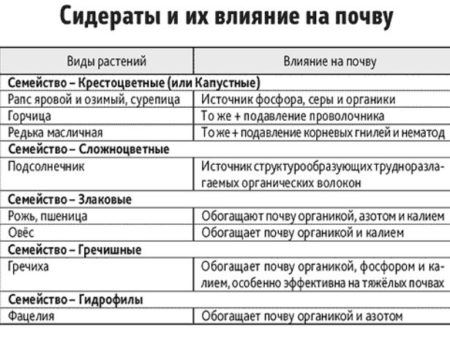
Donnik
An annual or biennial plant, tall with yellow or white inflorescences that exude a pleasant aroma. Melilot is a honey plant, withstands cooling, drought, is planted as a green manure for two years. Clover sowing is performed after harvesting, why the plant goes under the snow, in the spring, before planting buds, green manure is mowed and planted with potatoes or other crops. Melilot repels wireworm and nematode.
The plant feels good on sandy soil, with a neutral reaction and loam. Powerful root system, well accumulates nitrogen and quickly deepens into the ground. This feature allows you to cut the plant and, without digging a plot to plant potatoes, while the earth will be loose. The green part of the clover can be used as additional fertilizer for other plantings.
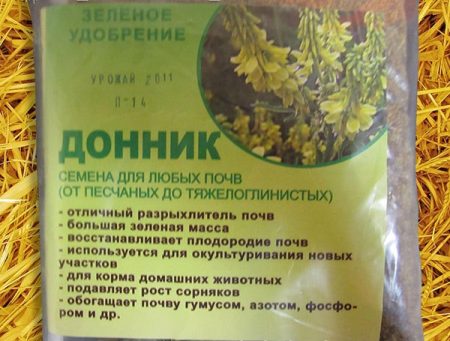
Lupine (yellow, blue, white). The plant is direct growing, with a massive root system of deep occurrence. According to experts, lupine enriches the soil better than manure. This green manure is able to restore any kind of soil. Lupine is sown in early spring or autumn after harvest. Cut green mass after 7-8 weeks after germination. The roots of lupine penetrate deep into the lower layers of the soil, extracting microelements that are difficult to access for other plants from there.
Phacelia
A beautiful plant with small blue flowers is a honey plant. You can mow greens after 45 days.It tolerates cooling, grows on any soil, including salt marshes. During the season, you can cut the green part 2-3 times. The root system of the plant makes the soil more loose, saturates it with nitrogen, potassium and phosphorus. After phacelia, potatoes and other vegetables, herbs, flowers are planted.
White mustard. An annual plant, used as siderate, easily tolerates temperatures close to 0 ° C. It grows well on soils with a neutral alkaline reaction, not suitable for planting in wetlands. Mustard is sown from April to August. 300-350 gr are enough for 1 hundred parts. After the greens are cut, you can not plant vegetables for about 10 days, because the substances in mustard. can inhibit the growth and development of garden crops.
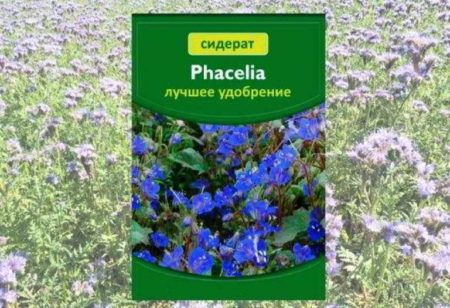
White mustard releases substances that repel many pests. It is also planted to improve the soil in order to suppress the growth of pathogenic bacteria. In the place where mustard grew, the soil becomes looser with a high content of nitrogen, phosphorus, and potassium. Mustard is ideal for planting after potatoes. After the first frosts, the green mass will grow weaker, and after winter it will turn into fertilizer, like the root system.
Pancake week radish
The plant belongs to the cabbage family, has tall stems up to 1.5 meters, which are highly branched. The flowers are white - lilac. The green part of the radish is growing rapidly, in two months it increases several times. This plant is able to drown out any weeds, to clean the fertile soil layer from harmful microorganisms. Pancake week radish is sown from the beginning of April to September. 200-300 gr are enough for one hundred parts. seed.
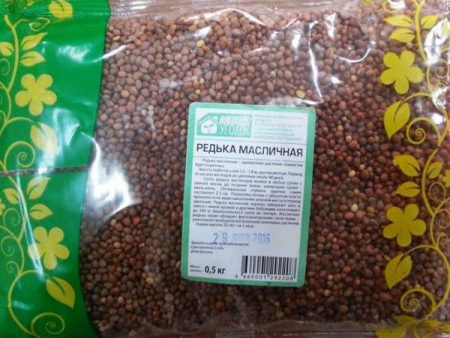
Oats
Refers to crops, grows well on moist soils, tolerates cooling. The green mass of oats contains a lot of potassium and nitrogen, which are necessary for the growth of potatoes. The ocellous root system of the oats makes heavy soil loose, well permeable. Oats give better results if planted with vetch. Dense crops of oats drown out the weeds.
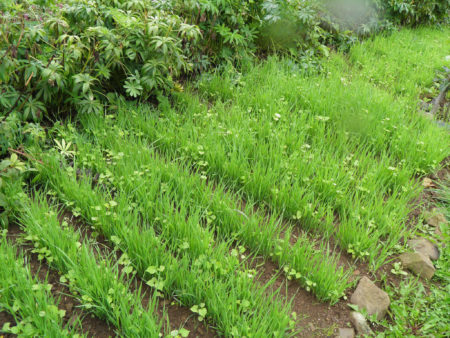
Rye
Winter rye, one of the most suitable green manure for potatoes. Rye builds up a thick green mass, which quickly decomposes, saturating the earth with nitrogen, phosphorus, potassium. The root system of the plant is powerful, it loosens caked soil quite well, saturating it with moisture and air. Rye is able to isolate phosphorus in an easily digestible form for potatoes and other crops. Rye seeds are sown in late August or early September after harvesting potatoes, in the spring, when the green part reaches 20-30 cm, it is mowed and planted in the ground. 14 days after that, you can plant potatoes.
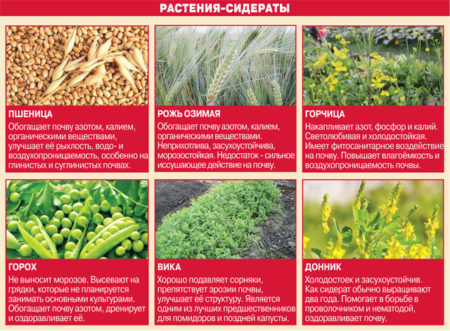
When and how to sow siderata
Autumn planting of green manure for potatoes is carried out about 1.5 months before frost, so that the plants have time to give the right amount of green mass. Under the snow, green manure will rot, and will serve as a good fertilizer for future plantings. In the spring, you can also sow seeds of green manure. Do this when the soil warms up, and at night there will be no frost. Most often, siderat seeds are sown in April. Two weeks before planting potatoes, the greens are cut and buried in the soil.Siderata easily propagate by self-sowing, so it is better to remove plants before the formation of seeds.
After planting potatoes in the aisles you can sow mustard. This plants will scare away pests, help maintain moisture. As soon as the greenery grows to 20-30 cm, the plants are cut and stacked in rows.
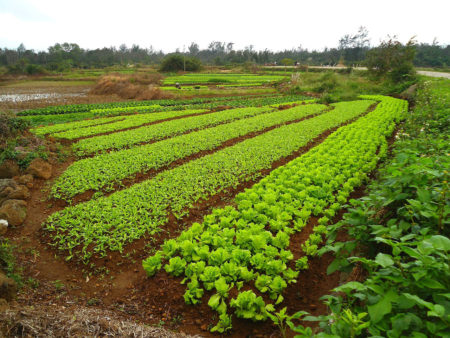
The basic rules for planting siderates:
- about 2 kg of seeds are spent per 100 m²;
- rare sowing of seeds will not give the desired result;
- when choosing siderates, the type of soil must be taken into account.
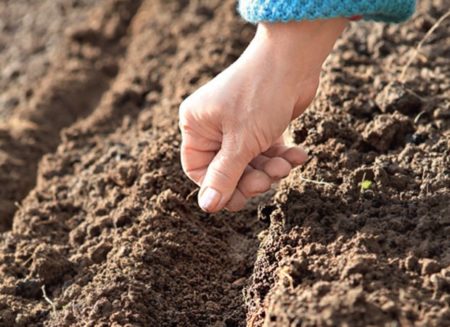
Reviews
Tatyana 52 years old
“Last year was the first experience in planting green manure on a potato plot. In early spring, she sowed mustard, a little chopper planted seeds in the soil. I didn’t water it, because the ground was wet. After a few days, seedlings appeared, the potato bed was very different from the others in a bright green color. Mustard grew until April 25, after which I cut the greens and laid them in the garden.
Potatoes landed on May 10 without preliminary digging. On this bed in the autumn, potatoes were not damaged by wireworms, the harvest was about the same as on ordinary beds, maybe only potatoes were larger. When I dug up the whole potato, planted vetch and oats in rows, each row had two rows of oats and one vetch. I’m waiting for the beginning of the new season to wonder what the harvest will be this year. ”
Alexander 40 years
“After potatoes, I planted fatselia, the land on my site is heavy, but the plant has sprouted. After a month and a half, I mowed everything and put it there on the site. In the spring I tried to dig the soil, as usual with a pitchfork, I want to say that it has become much easier. After planting, the potato planted on the plot grew more powerful and was ahead of the one planted in ordinary ridges. ”
Victor, 47 years old
“I tried to plant winter rye, in the spring, as soon as the snow melted, the siderat began to rage, the greens were mowed a month before planting potatoes. The greens were planted a little in the soil, in May when, planted potato seeds, the rye grass was already overdone. The harvest was good, the potato was large, there was practically no small one, and the soil became loose. In general, I liked the experiment with green manure, now I’ll try to sow Pancake radish. ”

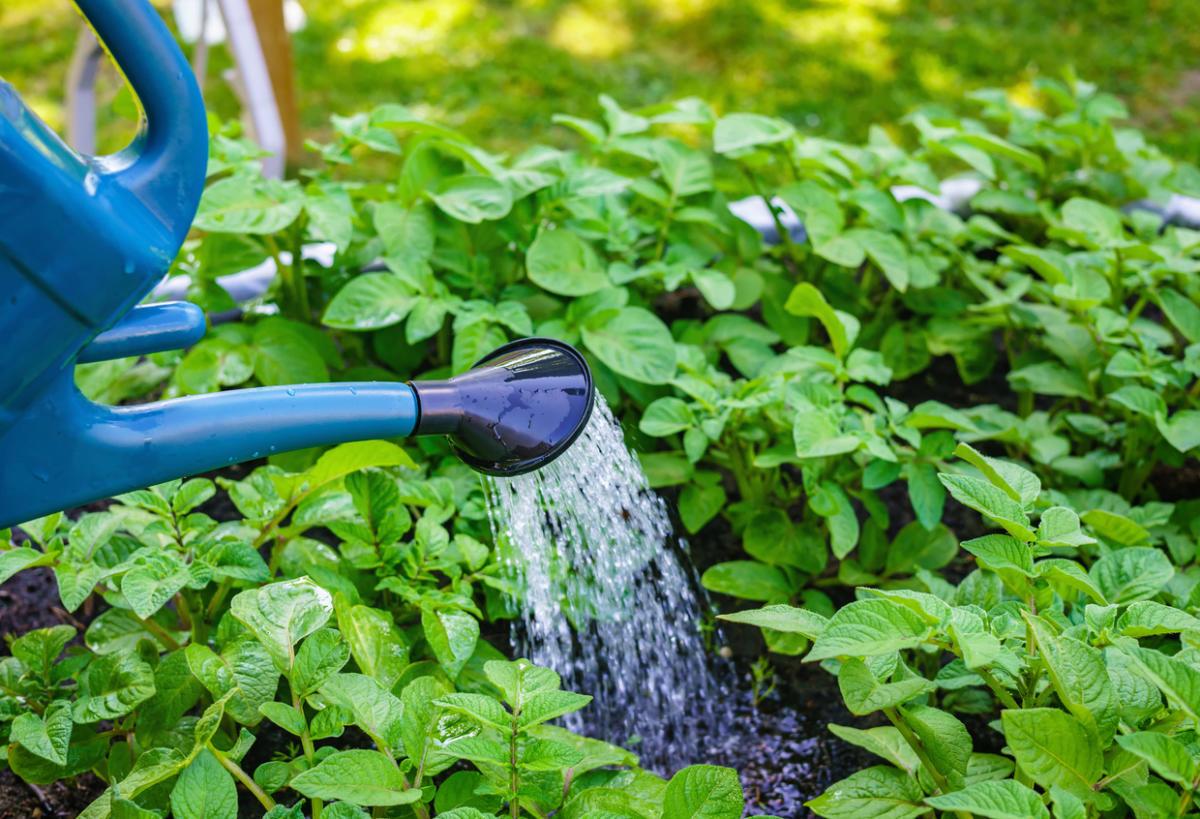
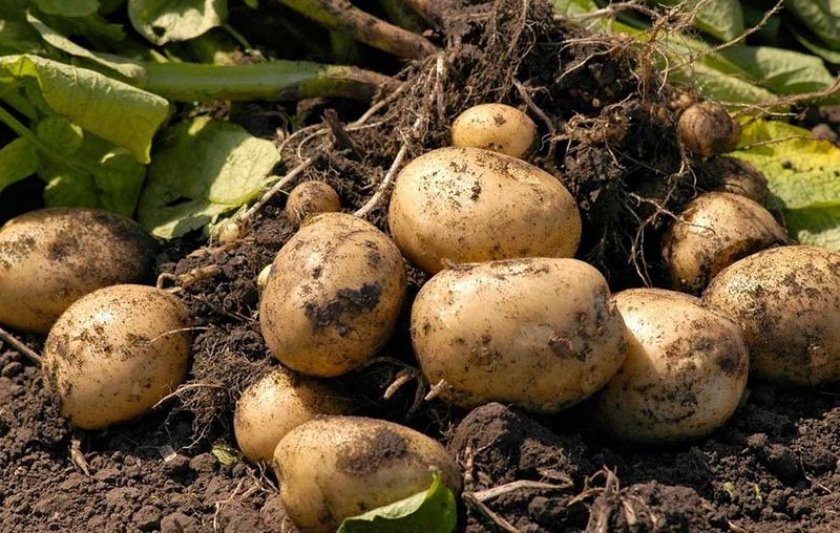
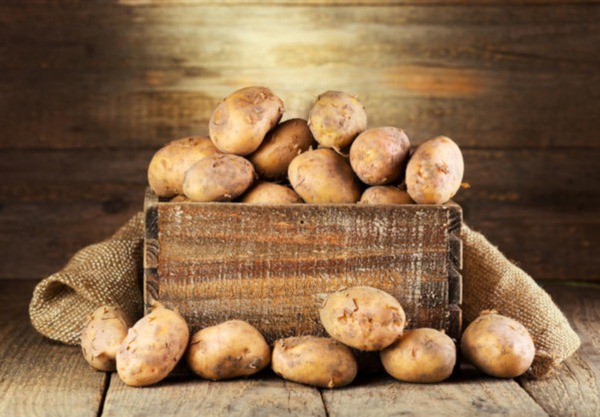
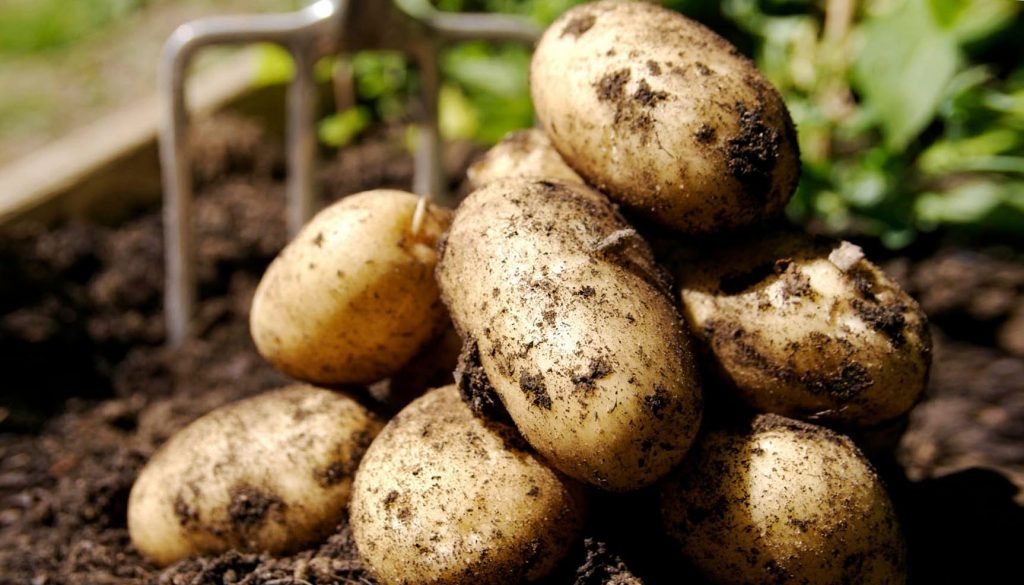 Description and description of varieties in Belarus with a photo
Description and description of varieties in Belarus with a photo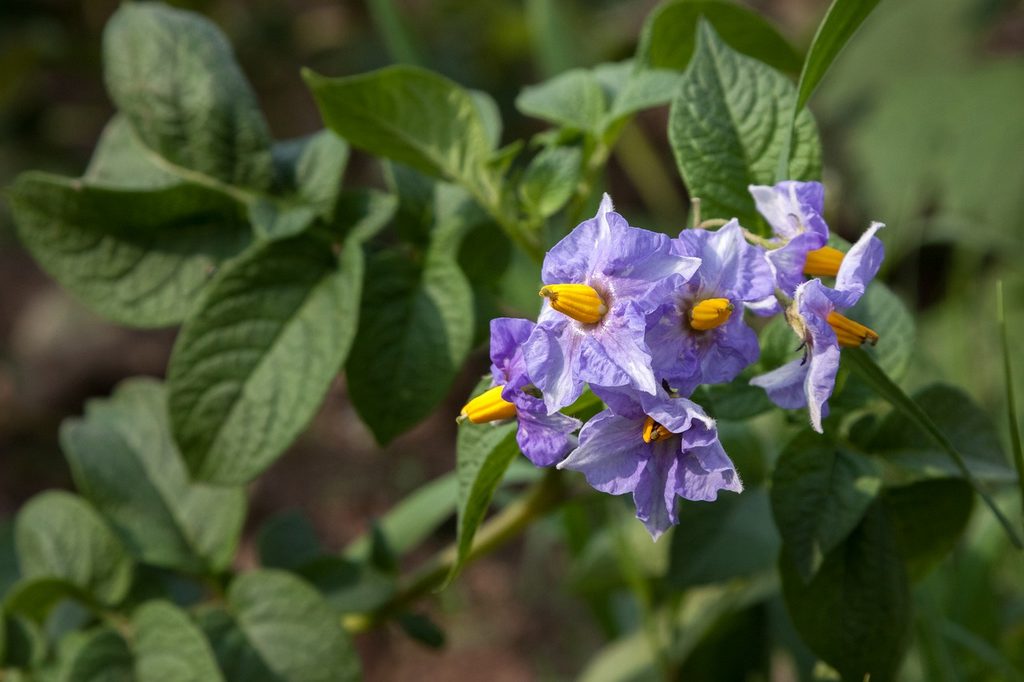 Do I need to pick flowers from potatoes: why do they do it
Do I need to pick flowers from potatoes: why do they do it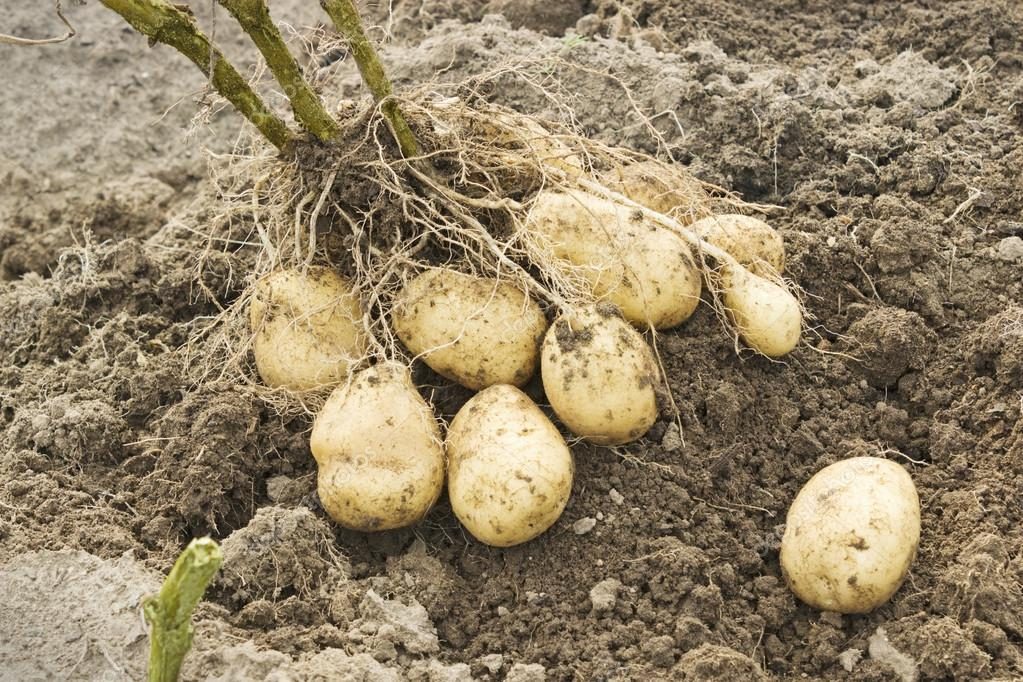 When to dig potatoes: timing and availability of new potatoes
When to dig potatoes: timing and availability of new potatoes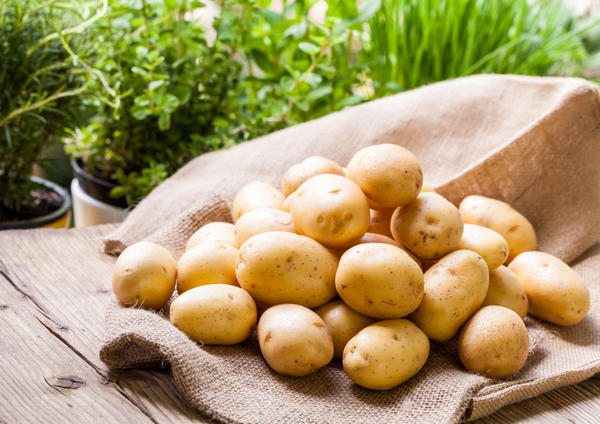 How to grow a good potato crop: various methods and methods, planting and care
How to grow a good potato crop: various methods and methods, planting and care
Alexander
After planting potatoes in the aisles you can sow mustard. DO NOT take risks, just look at the growth of green manure, generally you will not see the potatoes or it will be small